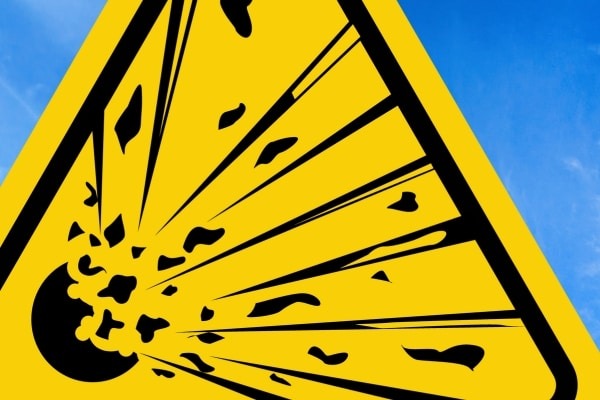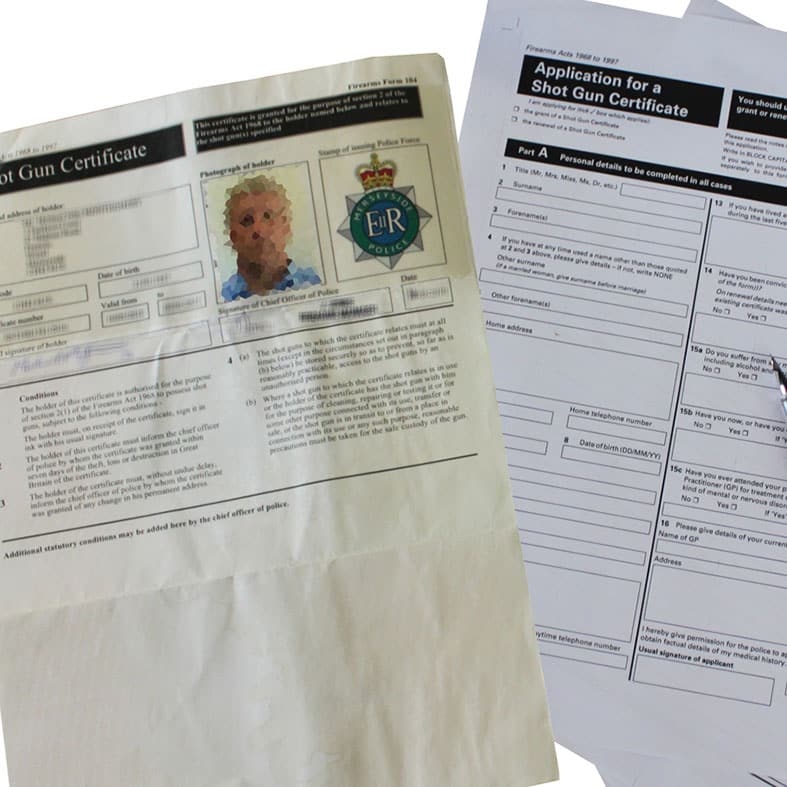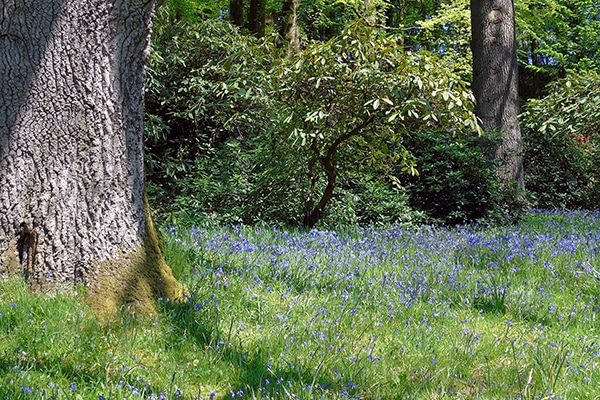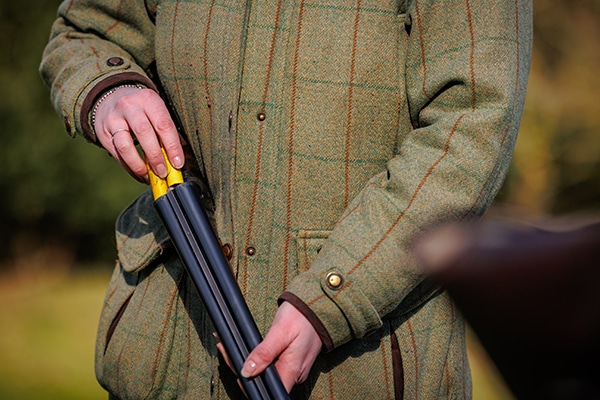
Storage of explosives
Succinct advice on the law surrounding the storage of civil explosives in the UK, including requirements for record-keeping.
Get information on the legal shooting season for mammals and birds in the UK.
Learn about our current conservation projects and how you can get involved.
Comprehensive information and advice from our specialist firearms team.
Everything you need to know about shotgun, rifle and airgun ammunition.
Find our up-to-date information, advice and links to government resources.
Everything you need to know on firearms law and licensing.
All the latest news and advice on general licences and how they affect you.


Firearms Firearms use Firearm certificate ‘open’ conditions
Conditions are a method available to the police to regulate the behaviour of certificate holders where necessary, but they have proliferated over the years and come under many guises. They are known to be widely applied as a matter of course to the majority of firearm certificates whether or not they have any demonstrable benefit.
Accordingly the system of imposing conditions has become bureaucratic and confusing. This page aims to provide advice only about ‘standard’ and ‘less restrictive’ (sometimes known as ‘open’) conditions for quarry and vermin (field) shooting.
There is no such thing as an ‘open’ certificate, as all certificates will carry some form of condition, but quarry shooting conditions are applied in two formats, usually becoming less restrictive over time.
Your first firearm certificate will usually have a condition restricting quarry shooting to “land deemed suitable by the chief officer of police, for the area which the land is situated”. This means that any land which you have permission to shoot over must also be approved by the police force for the area in which the land is located prior to shooting taking place.
Note that only one suitable piece of land is required as evidence of your “good reason” to obtain a particular firearm, and that you will not be limited to this one piece of land once your certificate has been granted. If you are, let the BASC Firearms department know.
It is your responsibility to check that any land you have been given permission to shoot over has been checked by the police for that cartridge. If you do not ascertain this, you could be prosecuted for failing to comply with your conditions.
The best way to ascertain whether land has been passed is to contact the police firearms licensing department for that area and ask them to confirm its suitability. If the land has NOT been passed for your rifle, then you will need to write to the licensing department that issued your certificate to ask them to check it or make the necessary request to the relevant force to do so on their behalf.
Once a certificate holder has been shooting safely for a time, the condition may be changed to allow the holder to shoot any land he has permission to shoot over without needing to seek police approval. This is known as the ‘less restrictive’ or – more commonly – the ‘open’ condition.
There is little guidance on the subject of timescales, but the Home Office guidance says that the condition may be made less restrictive once the certificate holder has ‘demonstrated competence,’ that there is no set time for this and that each case should be decided on its merits.
The police will not usually apply a less restrictive condition automatically; you will usually have to ask for a change of condition – which is free. This can be done simply by letter with your certificate enclosed. That said, some police firearms licensing departments do to impose the less restrictive condition once the certificate is renewed – after five years – assuming you have owned and been using your rifle sufficiently over the previous certificate life.
In practical terms the police can only really assess whether an ‘open’ condition may be granted by looking at ammunition usage and the time you have possessed the firearm (not from when the authority was given to purchase it) and whether the holder has come to the attention of the police, ie. through accidents or misuse of their firearms.
On occasion we have been told of police objections to ‘opening’ certificates, sometimes even denying the condition exists or recommending that a minimum of three or five years lapse before they will change the condition.
For a condition to be ‘opened’ it will depend on how much shooting you are doing and whether the police believe you to have regularly used your rifle over land without incident. The time before which different police forces will grant ‘open’ conditions varies considerably.
While the majority of forces assess application with regard to Home Office guidance (see Chapter 10 and appendix 3 of “Guidance on Firearms Licensing Law” 2013 (Home Office)) and look at each case on its merits, some have created policy and set arbitrary timeframes such as one, three or five years.
It is unlikely that any force will grant an ‘open’ condition within the first six months or so. Individual chief officers are not permitted by law to have blanket policies.
This is established by the case of R – Vs – Wakefield Crown Court, ex parte Oldfield. The ratio of this case says that where a public official has a policy, then if it is to be legal it must admit of exceptions.
Accordingly, forces cannot refuse to entertain requests for open conditions before an arbitrary timeframe has lapsed.
For some, the time will be longer than others dependant on the use of the firearm, eg. a rimfire on average will probably be used more than a deerstalking rifle. The police want to be sure that you are using your rifle to a reasonable level, gaining practical experience while doing so.
Unfortunately, the Firearms Acts does not provide an avenue of appeal against conditions. BASC is keen to see a system which allows conditions to be challenged where necessary and is working towards that end.
Where conditions are not applied correctly in-line with Home Office guidance or on the basis of a specific application taken on its individual merits, you may complain to the chief officer of police. Any response stating that a condition will not be granted because Home Office guidance does not allow is wrong and unhelpful.
The Home Office have clarified with BASC that their guidance is not there to set absolute limits of acceptable practice and may be departed from by chief officers. They further clarify that the guidance was mainly intended to deal mainly with the ‘good reason’ to acquire firearms rather than their use as such.
Got a question? Email us on firearms@basc.org.uk or call 01244 573 010.
© BASC June 2023

Succinct advice on the law surrounding the storage of civil explosives in the UK, including requirements for record-keeping.

Many parts of the UK are covered by protected sites and permission is likely to be required in order to shoot or manage the land for shooting and conservation.

It is estimated there are more than 1.5 million shotguns held legally in Britain and this code of practice will ensure a safe and responsible future for the sport.
Sign up to our weekly newsletter and get all the latest updates straight to your inbox.
© 2023 British Association for Shooting and Conservation. Registered Office: Marford Mill, Rossett, Wrexham, LL12 0HL – Registered Society No: 28488R. BASC is a trading name of the British Association for Shooting and Conservation Limited which is authorised and regulated by the Financial Conduct Authority (FCA) under firm reference number 311937.
If you have any questions or complaints about your BASC membership insurance cover, please email us. More information about resolving complaints can be found on the FCA website or on the EU ODR platform.
This website uses cookies so that we can provide you with the best user experience possible. Cookie information is stored in your browser and performs functions such as recognising you when you return to our website and helping our team to understand which sections of the website you find most interesting and useful.
Strictly Necessary Cookie should be enabled at all times so that we can save your preferences for cookie settings.
If you disable this cookie, we will not be able to save your preferences. This means that every time you visit this website you will need to enable or disable cookies again.
This website uses Google Analytics to collect anonymous information such as the number of visitors to the site, and the most popular pages.
Keeping this cookie enabled helps us to improve our website.
Please enable Strictly Necessary Cookies first so that we can save your preferences!
More information about our Cookie Policy